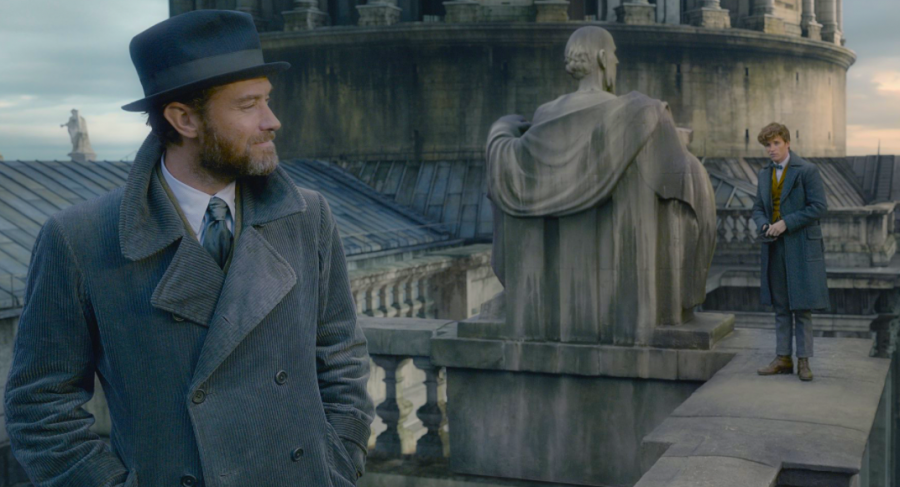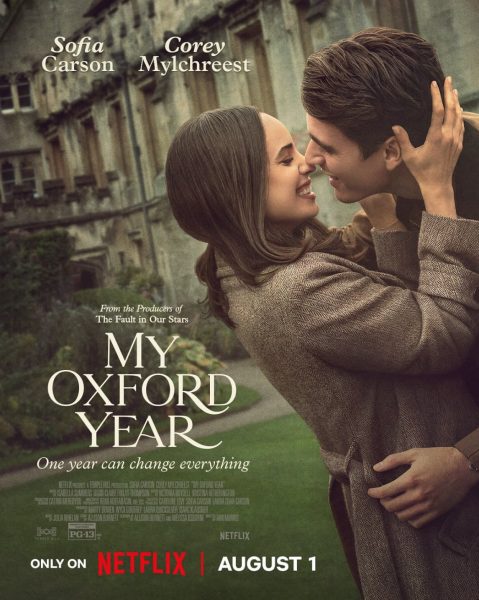Fantastic Beasts: The Crimes of Grindelwald Lacks Magic
By Matt Dillon
Fantastic Beasts: The Crimes of Grindelwald is the newest film to take place in the Harry Potter universe. Despite billing itself as a sequel to Fantastic Beasts and Where to Find Them (2016), the movie is only loosely connected. It seems far more interested in setting up a Marvel style cinematic universe than telling a complete, or even coherent, story.
In between the subplots, genealogy, cameos, horrors and everything else, Crimes accomplishes very little in its running time. Above all else, the Harry Potter universe is a lot less interesting without the titular “Boy Who Lived” and his peers. That is probably why the movie goes through so much trouble to connect the two at the expense of its own quality.
Crimes ties a variety of characters and narratives together under the loose pretense of stopping Grindelwald’s (Johnny Depp) villainous plot to have wizards rule over non-magical humans. Unfortunately, this ends up combining so many disparate plot threads that nothing has a satisfying resolution, as every aspect of the film is fighting for room to breathe.
The new characters are decent, particularly Eddie Redmayne’s Newt Scamander, the creature-collecting eccentric at the center of the first film. But they still pale in comparison to the original Harry Potter characters. The interactions of those old characters helped make up for the flaws in the plotting and world-building.
Crimes seems somewhat aware of its weak cast and premise, so it makes a point of bringing in as much of the original series as it can get away with. Unfortunately, that just makes this film’s additions even more underwhelming, as the only enjoyable parts draw directly from what came before it.
Chief amongst these heavy-handed callbacks is the presence of a younger and far less impressively dressed Dumbledore, played by Jude Law. He fills the role and history of his older counterpart, but has so little in common with him that it is difficult to see them as the same person. Law gives a talented performance, but fails to offer anything comparable to the sagely, complex figure that audiences know as Dumbledore.
The biggest issue with Crimes’ forced connections to the original series is that it gives the viewer no choice but to compare the two. If it had tried to be more of a standalone story, like the first film, it could have at least gotten out of the shadow of the originals. But you cannot take Crimes on its own terms because what came before it is so integral to the movie.
What you are left with is a film that only feels like a Harry Potter property because it constantly reminds you that it is one. Its cartoony fantasy creatures are a far cry from the more restrained but nonetheless iconic dragons, giant spiders and other creatures that haunted previous movies. The endless procession of witches and wizards have crisp suits and elaborate dresses, but none of them actually dress like spell-casters.
The magic on display is closer to god-like powers than quaint spells, as characters hurl lightning bolts, create infernos and cause seismic events. Most glaringly are certain gruesome plot elements that are difficult to reconcile with the complex but kid-appropriate mystique Harry Potter was once lauded for. The later films got progressively darker, but they were never as objectionable as Crimes.
Aside from its reliance on previous, superior storylines, Crimes has some visual issues. The special effects are technically impressive but poorly presented, as best shown by the indecipherable flying carriage in the opening sequence. They do not properly mesh with the physical sets and actors, in addition to having a weightless feel that breaks whatever sense of immersion the film manages to create.
The camerawork is mundane, and the editing has trouble with switching between shots. Crimes is, in every respect, a film that tries to be too much. Most glaringly, it tries too hard to be Harry Potter. That leaves a confusing, half-baked film that feels too entrenched in the mechanics of the universe while also completely disconnected from its heart.













































































































































































































